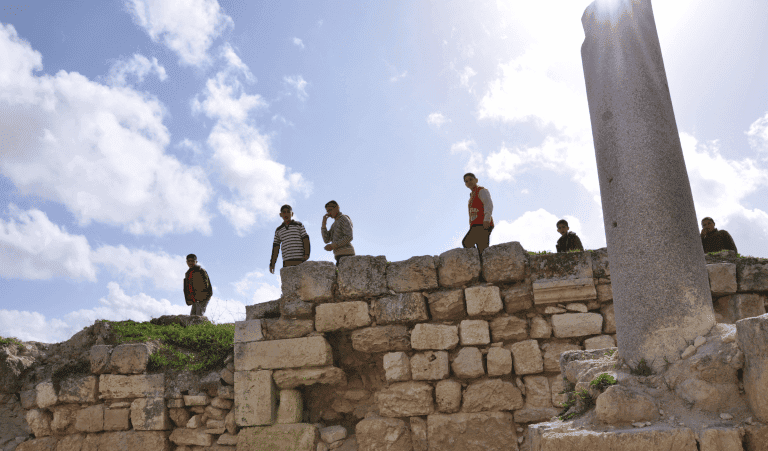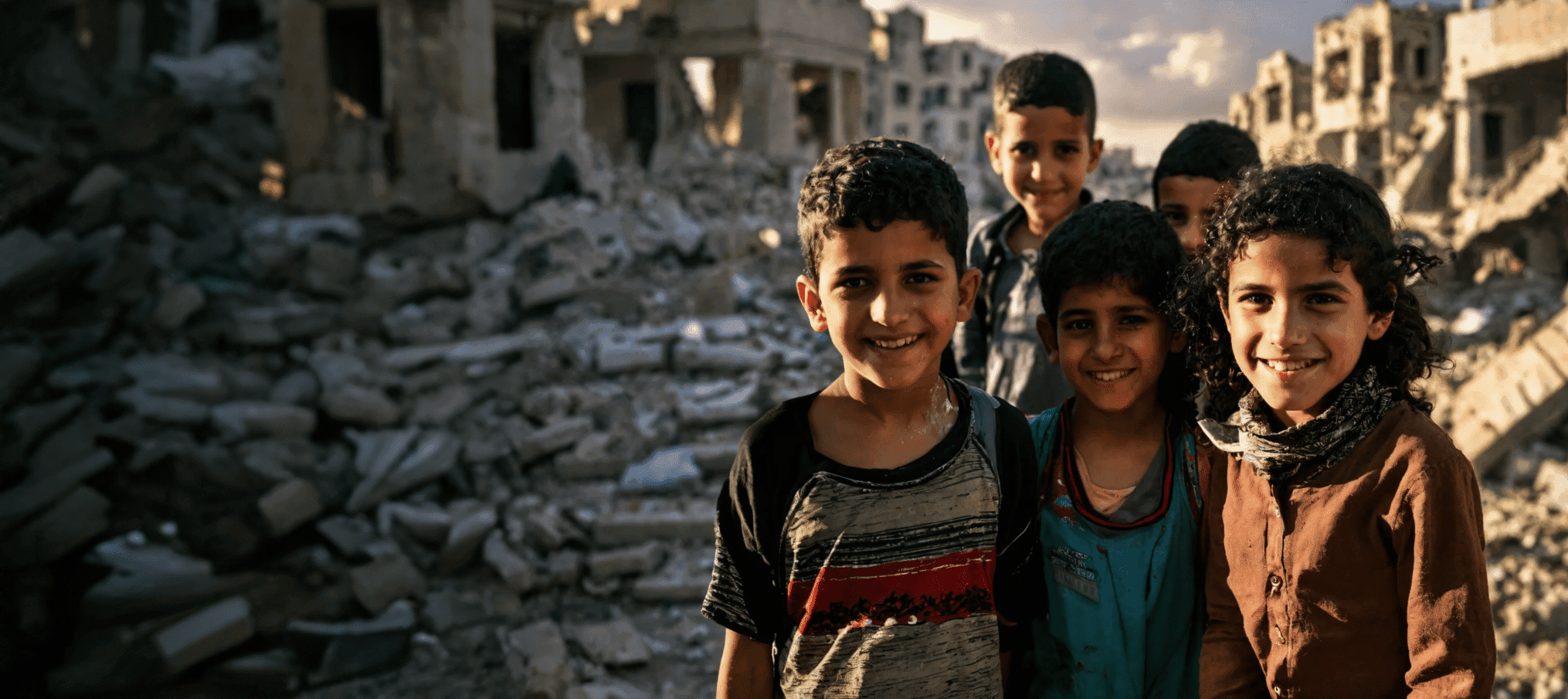"Roman coins! Only 50 shekels!" This is how Mahmoud (fancy name) answers when we ask him what are the bronze pieces, vaguely squared, that he hands us. We are in Sebastia, in the North of Palestine, in the middle of the central square of the country. In fact, on the irregularly minted and half-worn face, you can hardly see what looks like a profile of a Roman commander or emperor. Are they fakes? Even if they were, it would still be strange that it could be said, without problems, that we are selling coins from two thousand years ago. Museum pieces, or at least cultural heritage to be carefully preserved. Certainly not suitable to be put on display on a stall and sold to the first bidder.
Historical finds of Sebastia
Mahmoud is a farmer in his sixties. "My daughters are at university, and I need some extra money to pay for their studies." We walk with him a few stretches of dirt road, which from the square of Sebastia enters the steep and sunburned olive groves, in the middle of the ruins of a Roman forum and a Hellenistic theater. Mahmoud shows us his trees: plum trees, olive trees, some peach plants... "Cultivating the land is not enough for me. Here you can find some ancient coins and some terracotta objects. Tourists usually like them!" Then he adds, with a hint of insistence: "Buy the coins! It's only 50 shekels!"
But is it possible that cultural heritage, in a land so rich in history and tradition, is abandoned in this way? That there is no protection of any kind? Above all, is it possible that in Sebastia, on the site of one of the most flourishing and best preserved Greco-Roman colonies in Palestine, there is no awareness of the value of historical finds?
Ignorance of Palestinian artistic heritage
We asked these questions to Carla Benelli, head of conservation projects at Pro Terra Sancta, more than twenty years of experience in the restoration of cultural heritage in Palestine, a clear and gentle smile under her silver hair. "One of the fundamental problems," he tells us, "is precisely that of ignorance of the value of Palestinian artistic and cultural heritage. Recently, a DJ was arrested for playing techno music at the sacred site of Nabi Musa, near Jericho. The problem is that this Palestinian DJ had no idea where she was playing."
Then he continues: "And this ignorance is to be attributed first of all to foreign institutions, European first. Always to stay on the case of Nabi Musa: here European funds were used to build a hotel. But Nabi Musa is the site where Muslims venerate the burial of Moses! In short, it is as if we, in Italy, built with public funds a hotel in the Sanctuary of Divine Love in Rome ... Do you think it's possible?" It is clear, in short, that where knowledge is not promoted, then the degradation and lack of respect for archaeological sites emerges.
The involvement of the local community in conservation
This is why "we at Pro Terra Sancta involve local communities in the excavations, allowing them to know their heritage and then share the knowledge acquired. People have the right, as a community, to take an interest in and protect their cultural heritage. This is where training and education are needed. It is something, among other things, that is also written in the FARO Convention signed by the Council of Europe in 2005 and entered into force in 2011".
And this training for individuals is all the more necessary since there is no clear regulatory framework that establishes the protection of cultural heritage. And to see it you don't have to get lost in the semi-agricultural green of the North of the Palestinian Territories. It is enough to go a few steps into the Old City of Jerusalem (!) and you will see entire windows containing amphorae, terracotta, figurines, coins, bronzes ... all coming from some ravine of the rich and never banal historical route crossed by the Holy City. "There is no one who comes from outside, international, to protect the sites, but it is the local community that has to take care of it. And this requires, in fact, first of all formation".
Of course, it would be desirable for the legislation on cultural property, nominally existing within the state of Israel, to be effectively respected. We would move towards a form of real protection of the historical and artistic heritage present in the Holy Land. But things do not seem to be going in this direction: in a context such as the Israeli-Palestinian one, the conflict prevents a serious effort for understanding, a necessary prerequisite for applying the laws to protect culturally relevant sites.
Trade in cultural goods
The Jewish State of Israel, deaf to the UN resolutions condemning its rapacity on archaeological sites, granted in 1978 a sanatorium that made it perfectly legal to possess any cultural property obtained before that date, regardless of the methods of purchase. Since then, the legislation has never been revised and even Israel is not among the signatories of a 1970 UNESCO convention restricting trade in cultural goods.
In short, within the Israeli borders, until not many years ago, it was perfectly possible to exchange, buy, give away historical objects of any origin. And today there is no structural and institutional campaign to recover these assets with a view to their preservation.
That is why the support guaranteed to our conservation projects is very important. Thanks to the donations we receive to work in the archaeological sites of the Holy Land we can promote historical awareness in local communities. And this is the basis of the appreciation for one's own land, and, ultimately, of the attempt to make it more beautiful, more flourishing and more peaceful, planning one's future there.
"My daughters both study in Ramallah," Mahmoud told us. "I hope they can find a job in England, in Europe anyway." Who knows, if someone told it, that father would perhaps begin to desire for his daughters a future in Palestine. Perhaps, the slow wisdom of the plants would begin to mature, which grow from the roots and, firmly on their territory, thus manage to enjoy the sun of every day. And to grow under this.


















